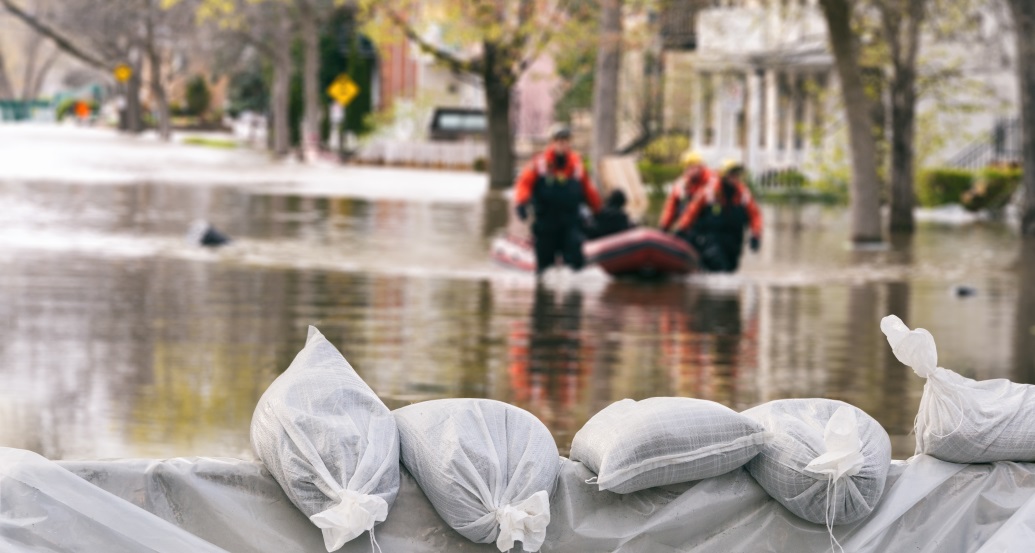On January 7, 2019, the United Nations Climate Resilience Initiative issued an official outcome document from the Marrakech Partnership roundtable on resilience held at COP 24 in Katowice, Poland that included the IFRC, the Climate Centre and PfR agency Wetlands International.
The COP24 GCA Climate Resilience roundtable, building on the first time COP23 GCA high-level events on resilience and the Global Climate Action Summit, focused on actions that public, private and community actors are taking and will be taking to accelerate investments to meet the needs of the most vulnerable people and countries to enhance climate resilience.
Thirty-two high level actors presented their interventions at this year’s roundtable. They represented a diverse mix across sectors and geographies, including governments at Ministerial and local level, private sector actors, financial institutions and investment firms, grassroots and civil society organizations, international and local NGOs, academia, faith-based institutions and think tanks.
The recently released IPCC 1.5 degree report was welcomed as strong evidence for urgent climate adaptation and resilience action at scale, which is also essential for mitigation and vice versa. There is clear urgency to scale up investment across and within sectors, especially in energy, land use and ecosystems (including oceans), human settlements, infrastructure and industry. Climate investments should, in particular, take due consideration of Small Island Developing States (SIDS), Least Development Countries (LDCs) and other countries vulnerable to climate extremes, shocks and stresses.
Climate adaptation and resilience building are understood as the foundation and cornerstone of sustainable development. The focus shall not be on the cost, but on the economic and social benefits of adaptation and resilience.
Key overarching short, medium and long term recommendations for all actors are:
- Act now: commit to building resilience based on already available knowledge, existing local initiatives, innovative solutions, existing and new public-private partnerships, and recently announced action agendas.
- Escalate ambitions leading up to UN Secretary General Climate Summit 2019 and beyond as small, incremental, and fragmented actions implemented in silos are not enough to build resilience in the growing climate variability, weather extremes, ecosystem tipping points, and demographic pressures.
- Leave no one behind: ensure climate resilient action agendas are truly inclusive of the voices and the experiences of the most vulnerable, disadvantaged, indigenous and marginalized and the poorest and incorporate the specific needs of women, youth, and people living with disabilities.
- Build strong local capacities and support community leadership in climate action and access finance to address these.
- Promote transformative, context- and sector-specific climate innovation and technology, especially for the poor and most vulnerable.
- Support inclusive dialogue and locally driven climate solution, including co-creation of knowledge together with traditional and indigenous sources, essential for decision making and funding to be made accessible to local actors especially for women, youth and marginal groups.
- Advocate for a qualitative approach in resilience building respecting local conditions and context.
- Protect the natural resilience that already exists in terrestrial and marine ecosystems instead of destroying it and ensure that risk-driven development actions help to reduce, and not exacerbate vulnerabilities or even create additional risks.
- Capitalize on the growing willingness of cross-sector collaborations and new types of partnerships and further support multi-stakeholder and multi-sector dialogues and platforms (public, private and community actors) on climate adaptation and resilience, bringing not only financial returns in the short and long term but also delivering environmental and social returns.
- Recognize, document and promote information and knowledge, including local, indigenous and innovative knowledge, to make it reachable and to facilitate scaling-up climate actions to anticipate, absorb and reshape climate risks further and faster together.
- Support people-centered, decentralized and climate risk sensitive investments (together with private-public blended finance) in order to leave no one behind and placing more “value for people rather than value for money”.
- Understand the interlinkages and colliding effects of climate, ecosystem degradation and conflicts and other disasters in building resilience to multiple hazards and stressors with most vulnerable communities and countries.
- Continue to build a common local to global dialogue and understanding of climate resilience in a Talanoa Dialogue style (where we are? where do we want to go? and how do we get there?) among private-public and community actors and together with shared resilience metrics and targets to measure progress within and across sectors.
Photo via Adobe Stock.

